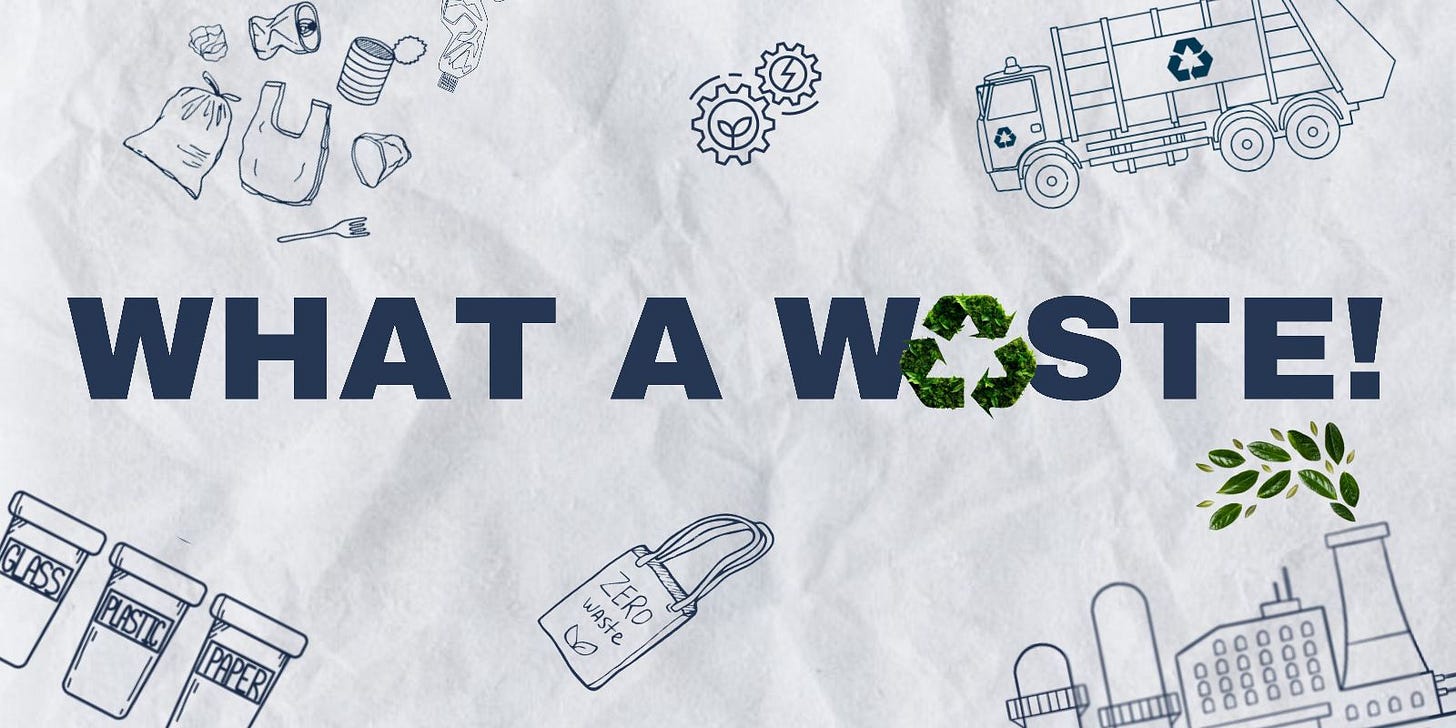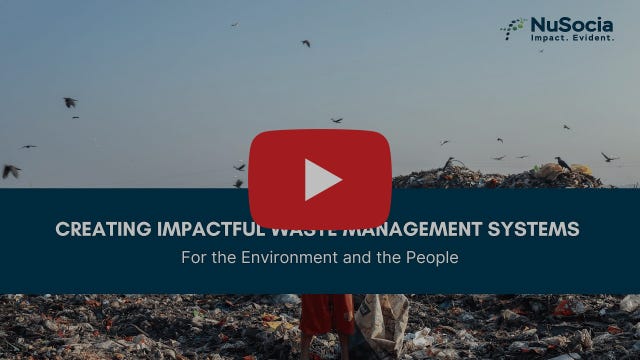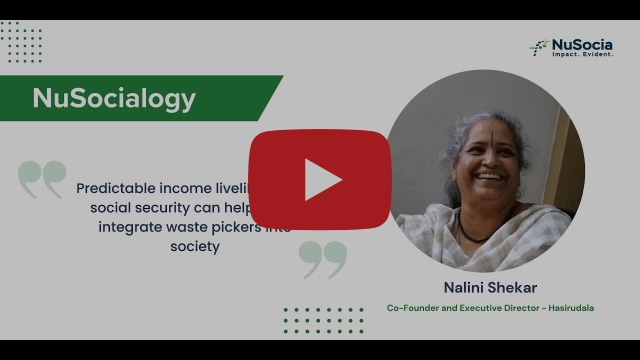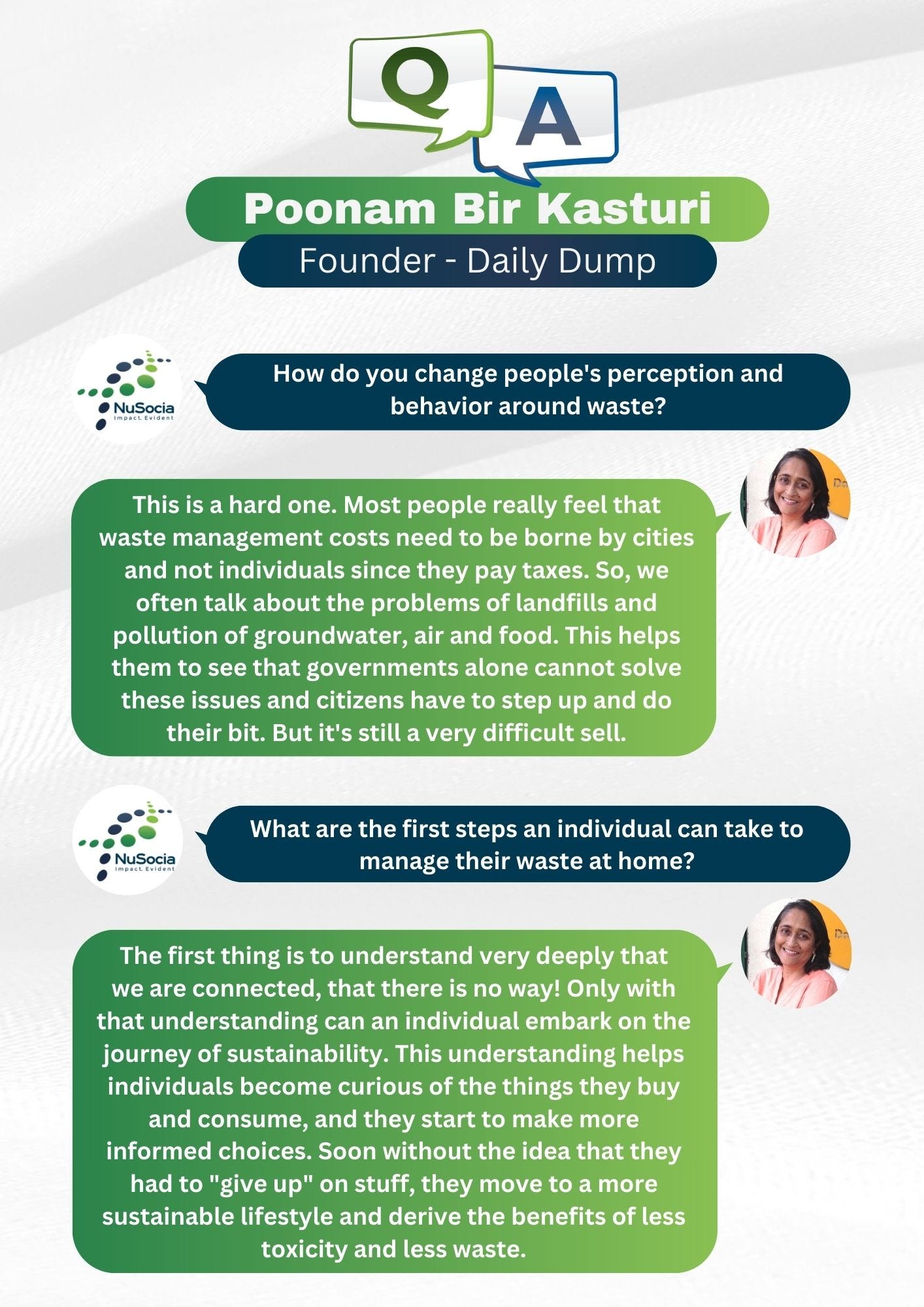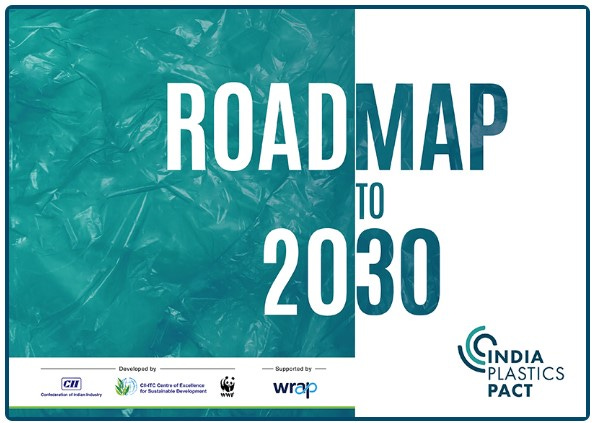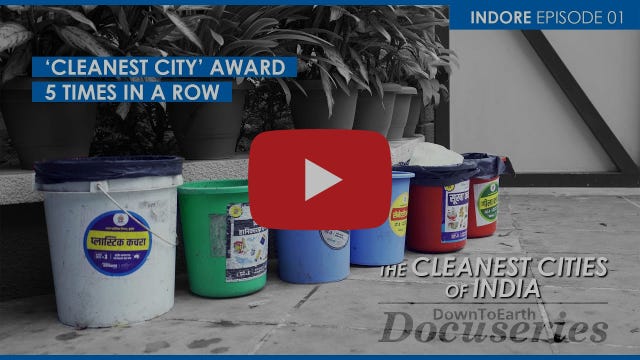What a Waste! | The Impact Post
Issue #35 | Wed, Oct 25, 2023
Dear NuSocia Patrons,
The world generates nearly two billion tons of municipal solid waste (MSW) each year, enough to fit into 822,000 Olympic-sized swimming pools. By 2050, waste is expected to increase to 3.4 billion tons, according to the World Bank. However, less than 20% of waste is recycled each year, with huge quantities still sent to landfill sites.
Collaboration and working with all stakeholders from the ground up is essential to tackle this burgeoning waste management challenge.
No Time To Waste
In March this year, 60 acres of garbage mounds in the Brahmapuram waste treatment facility located in Kochi caught fire. Last year, firefighters worked for days to extinguish flames after a fire broke out at Delhi’s Ghazipur landfill – the capital city’s largest.
In a 2019 report, the Indian government recommended ways to improve the country’s solid waste management, including formalizing the recycling sector and installing more compost plants in the country. While some improvements have been made, such as better door-to-door garbage collection and processing of waste, India’s landfills continue to grow.
How can CSR solve the waste management problem? Know more in our short video on the solid waste crisis in India.
LITTERal Action
Across the world, large numbers of people from low-income and disadvantaged communities make a living collecting and sorting waste, and then selling reclaimed waste to the recycling industry. They are rarely recognized for the important role they play in creating value from the waste generated by others and in contributing to the reduction of carbon emissions.
In our latest episode of NuSocialogy, Nalini Shekar, Co-Founder and Executive Director at Hasiru Dala highlights inter-related and mutually reinforcing deprivations that keep waste pickers in poverty and suggests ways for CSR to help end poverty.
Hasiru Dala, which means Green Force, is a social impact organisation that works with waste pickers and other waste workers to ensure a life with dignity.
Trash Talk: #RealTalk
An Indian family of four produces an average of 2.2 kg of waste each day. 60% of that waste is organic (kitchen and garden waste) and can be composted.
We spoke to expert ‘compostwali’ – Poonam Bir Kasturi, Founder at Daily Dump about making home composting a habit for India.
#NuSociaPicks
India Plastics Pact: Roadmap to 2030
The Confederation of Indian Industry calls on stakeholders from across the plastics value chain to join, support, and take steps towards a circular plastics economy. The India Plastics Pact is part of the Global Plastics Pact network, bringing together businesses, governments and NGOs to reduce, reuse, and recycle plastics in their value chain.
Know More
Indore - the Cleanest City of India
Indore has been ranked the cleanest city of India in Swacch Survekshan Surveys since 2017. The city is not only Open Defecation Free but has also earned the first Water Plus Certification in the country. How did Indore turn so clean?
Watch the Video



